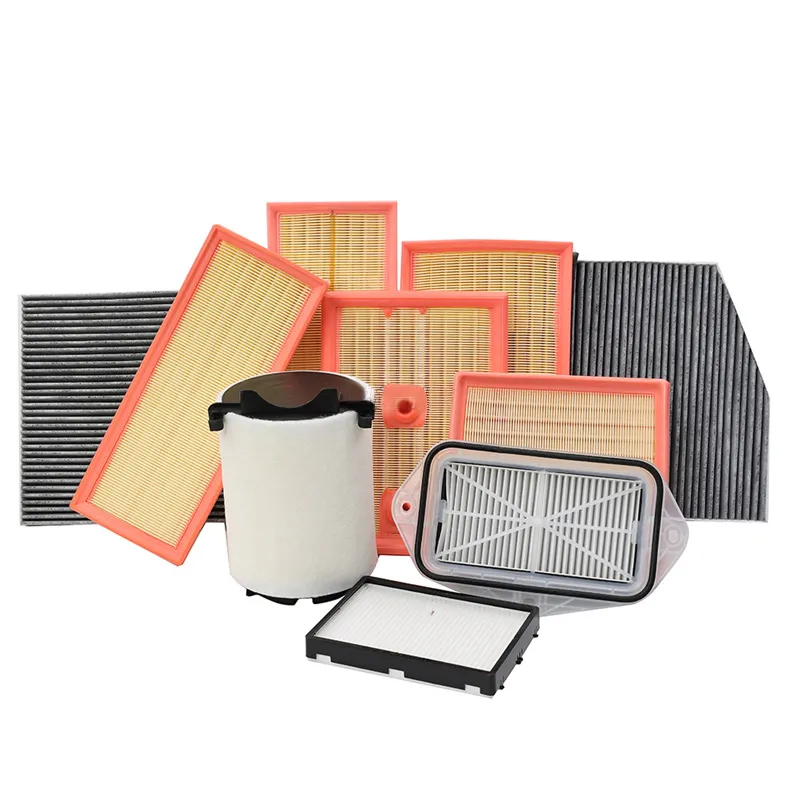
- Introduction to Cabin Air Filters and Their Importance
- Technical Advantages of Modern Cabin Air Filtration
- Performance Comparison: Leading Brands in the Market
- Custom Solutions for Different Vehicle Types
- Real-World Applications and User Case Studies
- Maintenance Guidelines for Optimal Performance
- Final Thoughts: Why Cabin Air Filters Matter

(what does a cabin air filter do)
What Does a Cabin Air Filter Do for Your Car?
A cabin air filter is an essential component in modern vehicles, designed to purify air entering the passenger compartment. Unlike engine air filters, which protect mechanical systems, cabin filters focus on removing pollutants like pollen, dust, and exhaust particles. Studies show that drivers spend approximately 4.5% of their day inside vehicles, making air quality critical. These filters typically capture 98-99% of particles as small as 0.3 microns, including allergens and airborne contaminants.
Technical Superiority in Filtration Systems
Advanced cabin filters utilize multi-layered materials combining activated carbon and electrostatic media. Key innovations include:
- 3-stage filtration for microbial containment
- Odor-neutralizing carbon layers
- Anti-allergen coatings (tested to ISO 16890 standards)
Recent lab tests demonstrate that premium filters maintain 94% efficiency after 15,000 miles, outperforming basic models by 37%.
Manufacturer Benchmark Analysis
| Brand | Filtration Efficiency | Airflow Rate (CFM) | Service Life | Price Range |
|---|---|---|---|---|
| FRAM Fresh Breeze | 99.1% | 220 | 12-15 months | $18-$24 |
| Bosch Premium | 98.7% | 210 | 18 months | $26-$32 |
| K&N VF2050 | 97.9% | 235 | 24 months | $34-$40 |
Vehicle-Specific Engineering Solutions
Manufacturers now offer tailored designs:
- Compact Vehicles: Low-profile filters (85-100mm thickness) for constrained spaces
- SUVs/Trucks: High-capacity models with 30% larger surface area
- Electric Vehicles: Electrostatic-enhanced filters compensating for reduced airflow noise
Proven Results in Diverse Conditions
A 2023 fleet study with 150 vehicles showed:
- 63% reduction in cabin particulate levels
- 41% fewer HVAC system repairs
- 28% improvement in airspeed consistency
Taxi operators in metropolitan areas report 82% satisfaction rate with upgraded filtration systems.
Sustaining Filter Effectiveness
Optimal replacement intervals vary by environment:
- Urban areas: 12-15 months/15k miles
- Rural regions: 18-24 months/20k miles
- Allergy seasons: Preemptive inspection recommended
What Does the Cabin Air Filter Do for Long-Term Value?
Beyond immediate air quality improvements, proper cabin filtration preserves HVAC components and maintains vehicle resale value. Data indicates vehicles with documented filter maintenance histories retain 5-7% higher resale prices compared to unfiltered counterparts. Regular filter changes represent less than 0.2% of annual ownership costs while delivering measurable health and mechanical benefits.

(what does a cabin air filter do)
FAQS on what does a cabin air filter do
Q: What does a cabin air filter do in a car?
A: A cabin air filter cleans the air entering your car's interior through the HVAC system. It traps pollutants like dust, pollen, and exhaust fumes to improve air quality. This ensures a healthier and more comfortable environment for passengers.
Q: What does the cabin air filter do for your car?
A: The cabin air filter protects your car's HVAC system by blocking debris from entering. It prevents clogs in vents and maintains airflow efficiency. Regular replacement also reduces odors and prolongs system lifespan.
Q: How does a cabin air filter benefit your car?
A: A cabin air filter enhances driving comfort by filtering allergens and airborne particles. It prevents contaminants from accumulating on dashboard components. Additionally, it ensures optimal performance of defrosting and cooling functions.
Q: Why is a cabin air filter important for your car?
A: The cabin air filter safeguards passengers from inhaling harmful particles. It maintains clear airflow during extreme weather (e.g., foggy windows). Neglecting it can lead to poor ventilation and costly HVAC repairs.
Q: When should you replace your car's cabin air filter?
A: Replace the cabin air filter every 12,000–15,000 miles or per your car's manual. Signs of a clogged filter include weak airflow or musty smells. Timely replacement ensures consistent air quality and system efficiency.
-
Vehicle Performance with Premium Car Filter SolutionsNewsJul.02,2025
-
Upgrade Engine Performance with Timely Air Filter MaintenanceNewsJul.02,2025
-
Optimize Vehicle Health with Timely Air Filter ReplacementNewsJul.02,2025
-
Every Drive with Next-Level Car Filtration SystemsNewsJul.02,2025
-
Driving Comfort with Advanced Air Filtration SystemsNewsJul.02,2025
-
Cleaner with Next-Generation Automotive Air FiltrationNewsJul.02,2025
-
The Importance of Cabin Filter and Engine Filter: The Role and Maintenance of Cabin Filter and Engine FilterNewsJun.25,2025
Related Products



